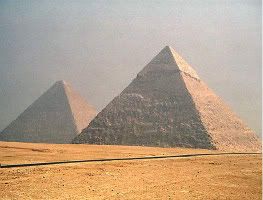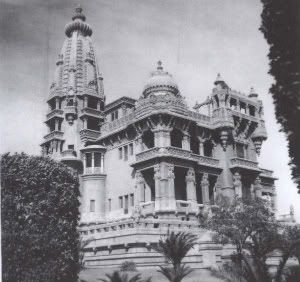Al shabakateen ba?u shabaka waHda wal farHa ba?it farHiteen
‘The two channels were combined into one, and the rejoicing was doubled’
The following post will clarify the use of its title.
Although Arabic has been the theme of this blog, recent events in the Arab world have diverted my attention from Linguistics to the up-to-the -minute political developments in Egypt.
The Egyptian newspapers, Al Shorouq, published an article (August 11) written by Mr. Fahmy Howaidy that took me back to the major theme of this blog – the Arabic language.
Recently many intellectuals in Egypt as well as other part of the Arab world have expressed their concerned about the decline in the proper use of al fusHa in schools, universities and in the different media such as TV news, talk shows, and newspapers.
I have previously written about the different debates conducted among Arab intellectuals on the deterioration of classical Arabic in the Arab world. Howaidy, in a captive way, contributes to this debate through his recent article, Scandal in Court (al shorouq, August 11, 2011).
In the article the author criticizes al fusha used by lawyers defending the deposed Egyptian president - Mubarak. Twenty lawyers attended the first trial and only one lawyer, Fareed al Deeb, used correct classical Arabic. The other lawyers’ linguistic aptitudes, says Howaidy, were not better than that of students in middle school.
The trial was widely transmitted through different Arabic and other world channels. What “saddened me,” says Howaidy was the question raised by an Arab reporter on British TV asking her guest the reason for the decline of standard Arabic among Egyptian lawyers during the trial of the former president. The guest replied, “It’s an aspect prevailing nowadays among the new generation of Arab intellectuals.”
The interview conducted on British TV led many viewers to re-watch the trial and pay attention to the linguistic performance of Egyptian lawyers’ language in court. The fusHa used by the majority of lawyers shocked the aficionado of the language, writes Howaidy. They never thought that the decline of Arabic among university students, especially law student, has reached such ignominious level.
There are several reasons for the decay of the language says the author. The lacks of proper education and of a national identity are major reasons for such decline, says Howaidy. The weakening of the educational system in Egypt led to the rise of many private foreign schools and universities where classical Arabic is poorly taught, a factor that is threatening the future of al fusHa, and encourages those who oppose its use to promote instead the virtue of colloquial Arabic. It is this negative attitude toward al fusHa, says Howaidy that led to the “despicable” (Howaidy’s term) add that I used as a title for this post.
Furthermore, Howaidy in this article finds a good opportunity to criticize, rightfully so, the demoted regime which he has constantly opposed in his writings. This language decay, says the author, justifies ones condemnation of the dismissed regime. Hence, the defending lawyers, unwillingly, became witnesses to the regime’s decadence that has diminished and distorted Egypt’s image in the Arab world as well as effaced the Arab identity of Egyptians.
This article was followed by 88 comments supporting Howaidy’s claim of the decline of al fusHa. One commentator wrote that stores in Cairo and Alexandria Malls have all foreign names, and one specific store was welcoming the month of Ramadan by displaying the sign “Merry Ramadan” on the tune of “Merry Christmas.”
This article on the ‘linguistic scandal’ committed at the Mubarak’s trial leads to many interesting discussions regarding the reasons behind the decay of al fusHa in Egypt: such as identity and language maintenance, poor educational system, rise of numerous foreign private schools universities, shift toward using colloquial in media where al fusHa is expected to be used, effect of globalization on the use of al fusHa, and the rise of the new trend of Arabizi.
Howaidy’s article was written following the first scene of the Mubarak’s trial. I am sure there will be more discussions of the lawyers’ linguistic performance when the tribunal resumes its work.
I will keep you posted of any further discussion by the eminent Fahmy Howaidy.
Copyright © 2010 Aleya Rouchdy, All Rights Reserved





No comments:
Post a Comment